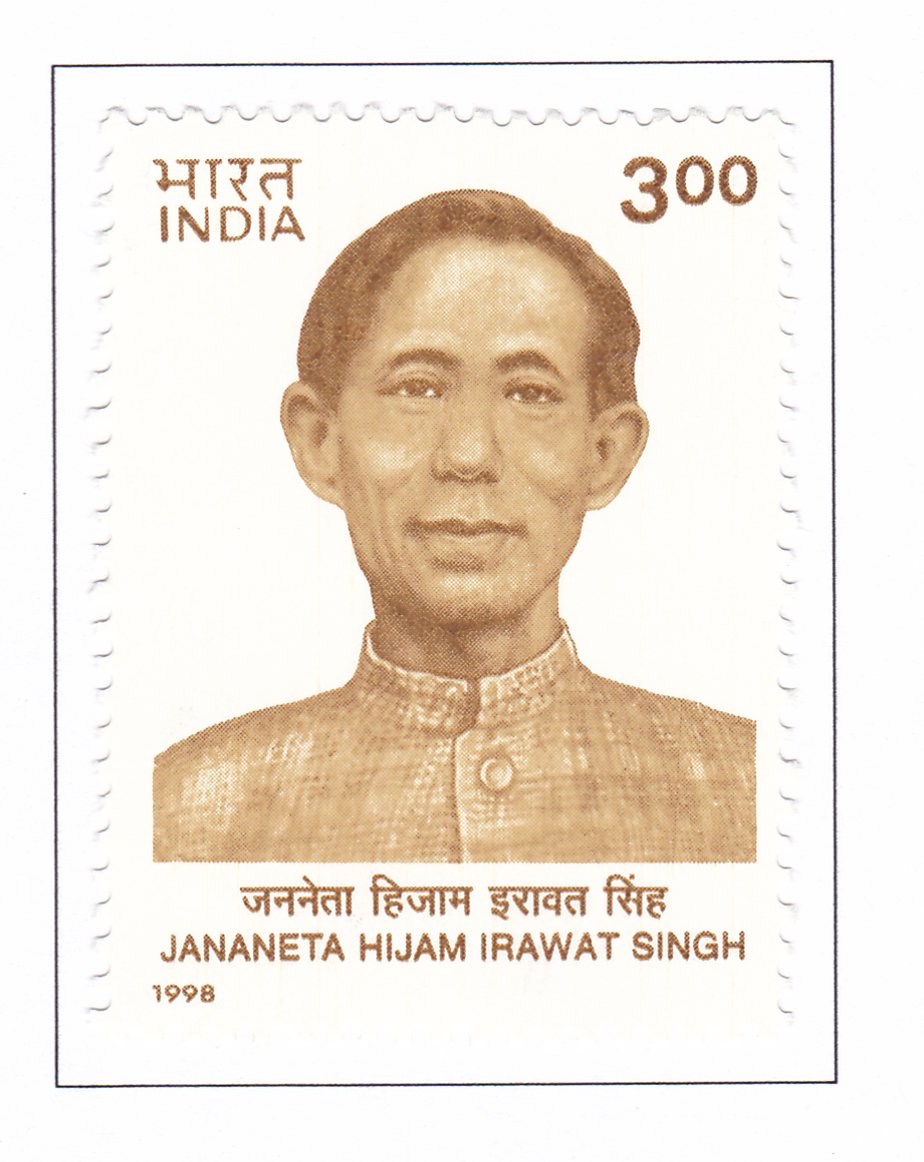Jananeta Hijam Irawat Singh (1896-1951)

Technical Data
| Date of Issue | September 30, 1998 |
|---|---|
| Denomination | Rs. 3 |
| Quantity | 400,000 |
| Perforation | comb 13 x 13½ |
| Printer | Security Printing Press, Nashiks |
| Watermark | No Watermark |
| Colors | Yellow brown |
| Catalog Codes |
Michel IN 1649 Stamp Number IN 1709 Yvert et Tellier IN 1414 Stanley Gibbons IN 1812 |
| Themes | Famous people | Men | Reformers |
Table of Contents
Jananeta Hijam Irawat Singh
Hijam Irawat Singh, born on September 30, 1896, in Imphal, Manipur, emerged as a towering figure in the fight against social and political oppression in Manipur. Orphaned at a young age, Irawat’s early life was marked by hardship, but his determination and brilliance allowed him to overcome these challenges. He funded his education through manual labor, excelling not only in academics but also in sports, eventually earning a spot on the Manipur Maharajah’s Hockey Team.
Inspirations and Early Activism
In 1924, Irawat attended a public meeting in Calcutta where he heard Mahatma Gandhi speak. Deeply moved by Gandhi’s message, he resolved to dedicate his life to serving the people. By 1927, Irawat had become a magistrate, a position he used to study and address the problems faced by the common people. His activism soon extended to a broader fight against socioeconomic oppression and religious exploitation.
Fight Against “Mangba-Shengba”
One of the significant issues Irawat tackled was the practice of “Mangba-Shengba,” a form of religious excommunication enforced by the king of Manipur and the priests. Irawat led the people’s protest against this discriminatory practice, successfully challenging the oppressive system.
Political Activism and the Nikhil Manipur Mahasabha
In 1934, Irawat co-founded the Nikhil Manipur Mahasabha (originally Nikhil Hindu Manipur Mahasabha), an organization aimed at unifying Manipuris both within and outside the state. By 1938, Irawat had transformed this organization into a political party, leading a fight against the dual rule of the British colonialists and the Manipur king.
Leadership in the “Nupilal” (Women’s War)
One of the most significant events in Manipur’s history was the “Nupilal” or Women’s War of December 12, 1939, which arose in response to the scarcity of rice. The women agitators turned to Irawat for leadership, and under his guidance, the movement evolved into a political agitation. This led to his arrest on January 9, 1940. He was imprisoned in Imphal jail and later transferred to Sylhet jail.
Post-Imprisonment and Continued Activism
After his release from Sylhet jail on March 20, 1943, Irawat was banned from re-entering Manipur by the Manipur Durbar. He then moved to Cachar, where he organized peasant movements and became the Secretary and later the Chairman of the Surma Valley Kisan Sabha. In 1948, Irawat was elected to the Manipur State Assembly, continuing his fight for social justice.
Contributions to Literature and Culture
Hijam Irawat Singh was also a pioneer of modern Manipuri literature and social reforms. He played a crucial role in building the Indian People’s Theatre Association (IPTA) in both Manipur and Surma Valley. Recognizing his literary contributions, the Manipuri Sahitya Parishad posthumously awarded him the Sahitya Fiatana.
Legacy
Hijam Irawat Singh passed away on September 26, 1951, at Tangbaw village near the Burma border. His legacy as a social reformer, political leader, and cultural icon continues to inspire generations. The Department of Posts commemorated his contributions with a postage stamp issued on his birth anniversary, honoring his enduring impact on Manipur and beyond.
